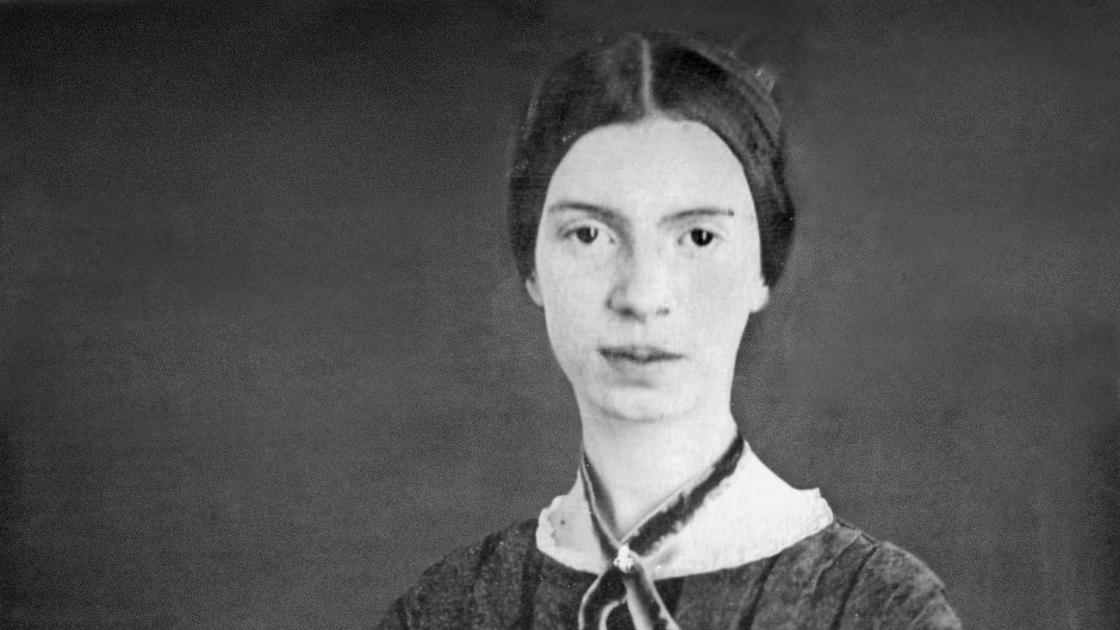The poems I like the best are those that hold up a mirror to my own thoughts, feelings, and impressions. This of course springs from a narcissistic fascination with myself. Much loved poems play with this tendency in readers like me, they tempt us to transmigrate into the voice of the speaker and claim it as our own. The poem carries out its work once we’ve been thus snared. Infusing our experience with meaning, poetic verse changes our course even as we tell ourselves that we’re the ones doing the reading.
These famous lines by Emily Dickinson demonstrate this phenomenon nicely.
I’m Nobody! Who are you?
Are you – Nobody – too?
Then there’s a pair of us!
Don’t tell! they’d advertise – you know!
How dreary – to be – Somebody!
How public – like a Frog
To tell one’s name – the livelong June –
To an admiring Bog!
The first line gifts its reader with a low profile identity crisis. We have two characters in the first line: I and you. Their identity is questionable from the beginning, when we read the verse aloud, the reader speaks as I. Yet the poem might also be speaking to its reader: you. Personal pronouns like I and you are called shifters among some circles of literary critics. A shifter is a pronoun, a name that can belong to anyone. Whoever reads this poem could be the I who is Nobody, and yet you is equally universal. Nobody could be calling out to anyone! Who are you?
The next few lines give a bit of context. The speaker, I, asks you if you’re, Nobody – too? It seems you answer yes, as there’s a pair of us! A pair of nobodies, who could be anybody. Though it’s a secret! The secret is that I and you could be anybody, but no matter who we are, we’ll still be nobody. Nobody is anybody! Preposterous!
Of course you can’t tell them. They’d advertise. Advertise ushers in a new tone. Unlike all these vague I’s and you’s, advertise describes a specific action. The word itself derives from the Latin adverto, which means to turn or steer towards something. In the case that the secret of our anonymity escapes, we would be turned towards and looked at. Once seen, our darling pair of nobodies might become dreary somebodies. Being seen as somebody by somebody else strips us of our universal, friendly anonymity and turns us into one of two unknowable others.
In the final lines, we see the fate of those who have been caught and turned into somebodies. They spend the livelong, or perhaps lifelong, month of June croaking their name to a public that’s been mired in a sticky summer bog. Once you become somebody, you have to perform a name again and again to an audience of others bogged down by their own unmoving identities. Our only defense against remembering that we’re actually nobody is to repeatedly remind ourselves and everyone else that we are most definitely somebody and we most definitely have a name that is not just anybody’s.
Each time I read this poem, I enter with an identity. I’m Monica. I like poems that transform my experience, which is why I’ve chosen to read this one. Dickinson turns the tables on me each time. With her, I’m nobody from the beginning — nobody can’t like anything in particular, even reading poetry. There isn’t anybody there to do any liking! My self-obsession is compromised. Reading a poem like this one is a low stakes way to embrace these kinds of questions about identity. It’s not scary. It’s funny and charming, and we happily accept its invitation to get cozy with the possibility of being nobody. Just about anybody could get into it.
